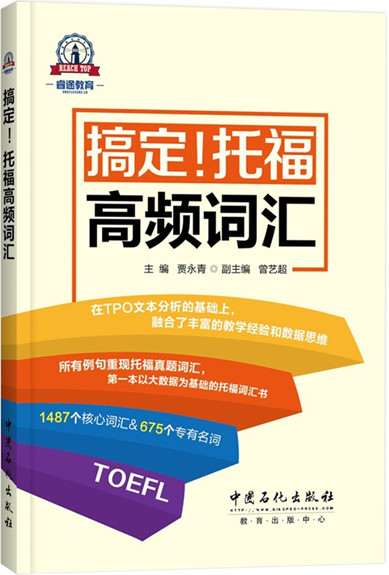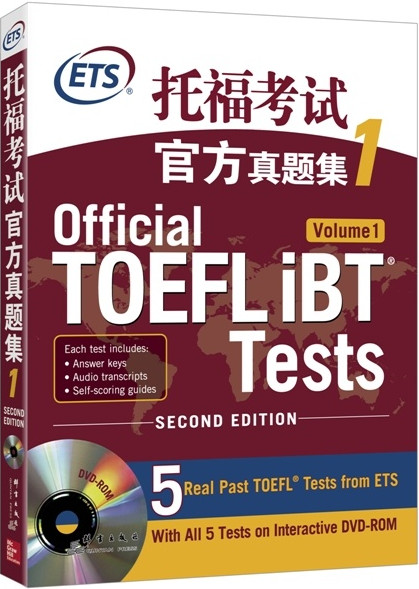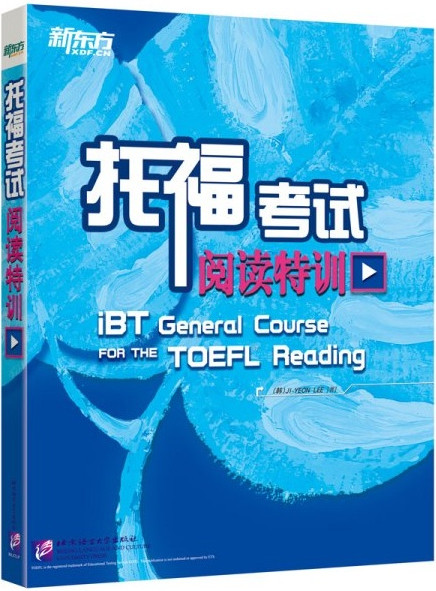词类
一、 冠词
【概念】
冠词是一种虚词,用在名词或者名词性短语的前面,表示名词是特指还是泛指。
冠词可以分为定冠词(the)和不定冠词(a / an)。
【你来练习】 an 用在元音音素前
____ university ____ upward trend ______ European
____ engineer _____ hot dog ______ honour
(一) 不定冠词(a / an)的用法
1. 第一次提及的人或物,泛指某人或某物之前
1) Once a child goes to school, they are entering a wider community where teachers and peers will have just as much influence as their parents do at home.
2) [一个最近的调查] conducted by the Chinese Academy of Social Sciences has found that one third of the white collar workers suffer from insomnia and depression.
2. 表示一类人或物 A knife is a tool for cutting with.
A dog is a common animal.
3. 不定冠词用在事物的“单位”前,如时间、价格等意义的名词前,表示“每一”。
1).People are suggested to do exercises . [至少一周两次]
2).Health experts recommend that people should drink . [一天八杯水]
4. 不定冠词用于固定词组中,如 quite a little, a large(good,great) amount /sum/deal of,
quite a few, a great(good,great) number of, a good many (of), a host of,
a lot of/ lots of/ plenty of a large quantity of /a series of/ a good supply of
1).Excessive intake of high fat, sugar and calories leads to a host of health problems.
2).Obesity is no longer a personal health problem, but a thorny issue inducing a series of social problems.
5. 用于序数词前,表示“又一,再一” Can you give me a second chance?
6. 抽象名词具体化,被具体化的名词要加不定冠词
a surprise a success a pleasure
7. 用于固定搭配中 once a week ; a series of; a piece of ;a wide range of
(二) 定冠词(the)的用法
1. 定冠词特指,上文中已经提到过的人或者事物,或双方明确所指的人或物前。
1) There are many factors that contribute to child and adolescent obesity. The factors may include age, sex, genes, psychological makeup and environment.
2) In network age, the development of the library faces new challenges.
2. 定冠词与可数名词单数连用,表示一类人或者物。
1) [电脑] and video games contribute to children’s inactive lifestyles.
2) [吸烟者] causes damage to others through second-hand smoking.
3. 定冠词用于表示世界上独一无二的事物或者自然现象名词前
the earth, the sun, the moon, the world, the South Pole, the universe, the Bible
4. 定冠词用在序数词、形容词最高级和表示方位的名词前。
5. 用在乐器名称前,特别是西洋乐器
但中国名族乐器和音乐名词前不用冠词
6. 用在姓氏复数形式前,表示“全家人”或“夫妻俩”
7.用在年代,朝代,时代名词前
8. 用于江河,海洋,湖泊,海峡,山脉,群岛。
9. 用在习语中all the same;all the time;at the moment;at the same time ;by the way
【你来翻译】
3) 最有效的方式
4) 有同样经验的人
5) 西游记
6) 他是我最不想见的人。
(三) 零冠词用法概述
1.表示泛指的复数名词前,表示一类人或事物
Employees get job satisfaction in a number of ways.
2.在季节、节日、星期、月份及三餐等名词前
[吃早饭] ___________is a good way to start the day and may be important in achieving and maintaining a healthy weight.
3. 指职位、头衔的词
4. 在表示棋类或球类的名词前
二、 名词和主谓一致
(一)名词的分类
专有名词
普通名词(物质名词,抽象名词,集体名词,个体名词)
(二)名词的数
1. 可数名词
一个吃素者 多个吃素者
2. 不规则的名词复数形式
stimulus-stimuli 刺激 Phenomenon-phenomena 现象
Basis-bases 基础 criterion-criteria 标准
Crisis-crises 危机 datum-data 资料,数据
3. 有些名词总是以复数形式出现
Belongings 财产 findings 发现
Savings 储蓄 surroundings 环境
4. 不可数名词分为抽象名词、物质名词和专有名词
Sugar 糖 cholesterol 胆固醇 nutrition 营养 stroke 中风
Insomnia 失眠 depression 沮丧 obesity 肥胖症 pressure 压力
(三)名词的格
1. 一般地说,“s”多用于有生命的东西或自然界独一无二的某些空间和时间名词
如:children’s health and safety, today’s white collar’s, vegetarians’ diet
2. of所有格多用于无生命的东西
如:the purpose of antibiotics, the problem of rubbish, the habit of eating meat
【常用短语】
beauty contest press conference department store
life insurance reception desk peace talk
信息中心 保镖 信用卡
代沟 服务行业 生存技能
交流技巧 知识经济 信息时
(四)名词用法常见错误
【你来改错】
1) Computer is a machine for collecting, processing and presenting information.
2) Conflicts may arise between tourist and local resident.
3) Smoking cessation is one of the likely factor that contribute to the development of obesity.
4) Little progresses have been made towards tackling poverty.
5) In most developed countries, a high proportion of the population now enters higher education at some time in their lives.
三、 数词
数词分为基数词和序数词,分数词
【你来读数】
1) 1,234,567,890,000
2) 1/3
3) 5/6
4) 0.5
5) 0.25
6) 3.1415926
7) Hundreds and thousands of
8) A 是B 的四倍(三种表达)
【有关数词的一些用法:】
a. in one’s +基数词整十的复数形式,表示在某人几十岁时
in one’s twenties 在某人20多岁时。
b. in the +基数词整十的复数形式, 表示在几十年代
in the early 1930s
c. 基数词和名词合成的形容词作定语,其中的名词只能是单数
Tom is an eleven-year-old boy.====Tom is eleven years old.
d. 序数词前加a/an,表示再,又…..
shall I ask him a third time?
e. 房间号,门牌号“名词+基数词”
Room two o three.
f. 章节,页数用“名词(不加冠词,首字母大写)+基数词或者the+序数词+名词
Charpter One/the first charpter
四、 代词
【代词的种类】
人称代词 /物主代词/反身代词/指示代词/不定代词/疑问代词/关系代词
【代词使用常见错误】
1) When one searches on the Internet, you will potentially get onto illegal websites, which will cause dare consequences to us.
2) Studying in co-educational school, a girl may concentrate more on popular boys, which may cause ignorance of his study.
3) Girls are easy to be persuaded to buy cosmetics, because she always wants to be pretty.
4) This TV programs eventually impair adolescents’ health。
5) Some graduates are proud of their diplomas, however, companies regard they as nothing.
【翻译练习】
1) 青少年不能控制自己。
2) 青少年不能控制自己的行为。
五、 形容词
(一)基本用法
形容词修饰名词,说明事物或人的性质和特征。
1) Coeducation makes children more socially adaptable.
2) Many physical and psychological problems may arise in a single-sex school.
3) I am not alone in thinking that Chinese education is an exam-oriented one.
二)形容词名词化
形容词加上the 表示一类人或者表示抽象概念的物。
指人时,谓语动词用 ; 指物时,谓语动词用 。
1) and [年轻人和老年人] do not have the same idea about physical exercises.
2) Young children may go astray and become [无家可归的人].
3) The good, the beautiful and the true should be distinguished from the evil, the ugly and the false
(三)复合不定代词被形容词修饰时,形容词放在名词后面
【例如】something, anything, nothing, nobody和anybody.
Youngsters should spend their pocket money on something worthy.
(四)常用复合形容词
1) 形容词+名词 Full-time 全时工作的
2) 形容词+名词+ed Kind hearted 好心的
3) 副词+过去分词 Hard-won 得来不易的
4) 名词+现在分词 Peace-loving 爱好和平的
5) 名词+过去分词 Snow-covered 白雪覆盖的
【翻译】
过时的 冷血的 短视的 心胸狭窄的 双刃剑
【高分形容词】
Important: essential, significant, vital, crucial, profound, play a pushing role, indispensable, requisite, critical,fundamental, primary, elementary, underlying, rudimentary, basically, necessary…
Angry: annoyed, displeased, enraged, exasperated, incensed, infuriated, irate, mad (informal), livid (informal), berserk, outraged, resentful
Big: gigantic, massive colossal, enormous, immense, gargantuan, tremendous, titanic, giant, vast, large, huge, monster, bulky,
Good: marvelous, fabulous, gorgeous, spectacular, outstanding, distinguished, remarkable, superb, incredible, unbelievable, out of this world, magnificent, charming, stunning, fantastic, terrific, excellent, great, wonderful, amazing, awesome Many: numerous, myriad, infinite,
Beautiful: charming, charismatic, attractive, gorgeous, pretty, endearing, sweet, adorable, eye-catching, handsome, hot, cute, good-looking, lovable, engaging…
Clever: brilliant, knowledgeable, intellectual, intelligent, excellent, bright, smart
Happy: delightful, delectable, elated, glad, overjoyed, pleased, jubilant, merry, joyful,
Fast:swift, quick, rapid, speedy, hasty, nippy, like lightning
Hurry (v): hustle, rush, make haste, tear, step on it, dash, get a m
ove on, step on it, scoot.
六、 副词
(一)副词是一种用来修饰动词、形容词、副词或者全句的词,说明时间、地点、程度、方式等概念。
(二)与形容词连用,表达更精确含义。
1. Children tend to be physically and psychologically unhealthy if they are indulged in games.
2. Traditional methods may prove [有经济价值的] in the future.
(三)单独使用,放在句首,或修饰整句,或表示某一领域。
1. [很有趣] , cats and dogs can hardly get along well in a house.
2. [很明显] , there are certainly dangers in taking time off at that important age.
3. [个人来看] , I think that the amount of money such sports stars make is more justified that the huge earnings of movie stars.
4. Financially, she is independent, but emotionally she is dependent.
5. Educationally speaking, taking part-time jobs during the schooling may waste students’ precious studying time.
【高分副词】
Dramatically intensely
considerably
greatly
highly
initially
generally
seemingly
superficially
mainly/mostly
primarily
chiefly
entirely
completely
totally
entirely
basically
partly
especially
merely=only
virtually
specifically
strikingly
properly /appropriately
increasingly
understandably
impulsively
overwhelmingly
unnecessarily
merrily
moderately
mentally
psychologically
physically
emotionally
academically
- 06-13·2018年托福语法易错题30道
- 06-08·2018年托福语法练习题(13篇)
- 06-08·2018年托福语法练习题(13)
- 06-08·2018年托福语法练习题(12)
- 06-07·2018年托福语法练习题(11)
- 06-132018年托福语法易错题30道
- 06-082018年托福语法练习题(13篇)
- 05-312018年托福语法高分要点介绍
- 05-122018年托福语法练习题(2)
- 05-122018年托福语法练习题(1)
编辑推荐
- 模拟试题
- 历年真题





